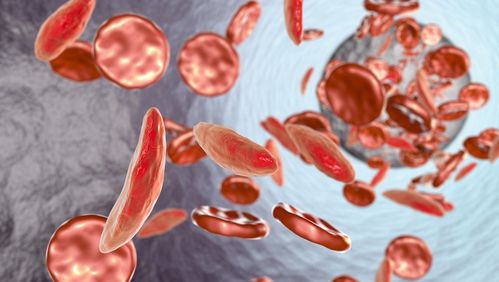As the seasons change, the human body responds sensitively to the surrounding environment just like the natural world, and “coldness” quietly sneaks into our bodies, becoming an invisible visitor affecting the internal organs in different ways. In traditional Chinese medicine, coldness is considered one of the six pathogenic factors, and each organ it touches will exhibit specific symptoms, thus requiring targeted adjustments.
When the heart is affected by coldness, one may experience emotional fluctuations, difficulty falling asleep, and frequent dreams. In such cases, attention should be given to nourishing the heart and calming the mind, consuming foods with warming properties like longan, red dates, and lotus seeds, maintaining a good daily routine, reducing nighttime worries, and keeping a cheerful mood.
If the spleen encounters coldness, digestive discomfort may arise, such as abdominal bloating, decreased appetite, and irregular bowel movements. Warming the middle and invigorating the spleen is the way to address it, suggesting the consumption of easy-to-digest foods like Chinese yam, poria cocos congee, avoiding raw and greasy foods, and combining moderate exercise to invigorate qi and blood circulation.
Coldness affecting the kidneys may lead to sore and weak lower back and legs, cold hands and feet, and frequent urination. Strengthening the kidneys and keeping warm are crucial, achieved by consuming black sesame, walnuts, deer antler, and paying attention to keeping the lower body warm, preventing excessive fatigue, and reducing the frequency of sexual activity.
If the lungs are disturbed by coldness, it may cause difficulty breathing, cough with clear or watery phlegm, and weakened voice. At this point, warming the lungs to dispel coldness is recommended, such as drinking ginger and scallion broth, paying attention to wind protection and warmth, staying away from cold and air pollution, and ensuring a fresh respiratory environment.
As for coldness affecting the liver, it may result in meridian blockages, emotional depression, and women may experience menstrual issues. Regulating the liver using rose tea, goji berry water, maintaining emotional stability, avoiding excessive anger, and combining moderate exercise to promote smooth circulation of qi and blood are advised.
To comprehensively combat coldness, the following measures can be taken: choosing warm foods while avoiding cold foods; adjusting clothing according to the temperature, with particular attention to protecting the waist, abdomen, and feet from coldness; engaging in moderate exercises like tai chi, yoga, and walking; maintaining a positive mindset, socializing, developing interests to relieve stress; considering traditional Chinese medicine treatments such as personalized herbal formulas or acupuncture.
In addition, there are other practical lifestyle habits and natural therapies, such as drinking ginger tea to improve blood circulation, soaking feet in mugwort water to warm the body, increasing sunlight exposure to enhance yang energy, and relaxing the body and mind through meditation and deep breathing, collectively promoting the body’s resistance to coldness and overall health.
Remember, maintaining health is a continuous journey that starts from daily small actions, building a strong defense system for our physical and mental health to resist the invasion of coldness.


